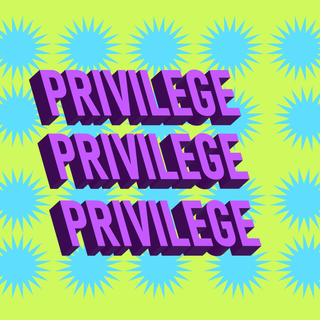
Is This Normal? ‘I Get Really Awkward When Someone Compliments Me’
Our inability to swiftly conjure a response that’s respectful, proportionate, modest, and also, acceptable, can make compliments awkward.

In this series, we dig into our strange phobias, fixations, and neuroses, and ask ourselves — Is This Normal?
I really don’t know how to respond when someone compliments me. Don’t get me wrong, it fills my heart with joy. But I immediately start wondering: am I looking too happy? Or, do I not look happy enough to suggest that I’m thankful they said a good thing about me? Do they really mean it, though? What if they think I’m conceited and are trying to gauge if they’re right based on my reaction to them? Should I, then, pretend that I didn’t expect it at all, and they’re the first person to point out this good thing about me? Will that seem like I’m putting up an act, though? Maybe, I should just thank them and move on… wait, am I expected to return the compliment? Quick, what can I compliment them about that seems genuine, and not something I made up on the spot simply for the sake of complimenting them back?
Generally, this ordeal ends with me mumbling a thank you, and actively overthinking my response for, at least, the next half an hour. The overthinking doesn’t cease after this time; it merely switches to passive mode. Is this normal? Turns out, more than I thought.
One of the biggest contributors to the awkwardness that can follow a compliment is the recipient’s inability to swiftly conjure a response they deem respectful, proportionate, modest, and above all, acceptable. Indeed, it can seem like an uphill task when one is unable to draft a response that captures each one of the attributes; the awkward silence, of course, can serve to dial up the anxiety, clouding one’s mind further and, in turn, prolonging that awkward silence.
This confusion is often a product of one’s upbringing and cultural background. In the same way that some cultures endorse accepting compliments with humility while others preach enthusiastic responses, different families, too, advocate — either consciously or unconsciously — for different styles of responses. Some train their children to either downplay the compliment or respond with false modesty. A few others might teach them to “own it.” So, while a child might learn to respond with meekness from their family, they may be exposed to other approaches — like zealousness or smugness — from their teachers and fellow students. Given how diverse the styles are, their collective influence can result in chaos and confusion. Further, with increased globalization, too, social settings often become a melting pot of cultures — making it even more difficult to reckon which path to choose.
Related on The Swaddle:
How Extreme Self‑Focus Can Prevent ‘Shy’ People From Bonding With Others
Of course, the more socially anxious one is, the more challenging the act of gracefully receiving a compliment becomes. With social anxiety already causing one to feel uneasy in social situations, compliments can amplify their self-consciousness and fear of judgment — making them worry about their response being keenly evaluated by the one who paid them the compliment. Additionally, a compliment can also put one on the spot — almost as though they were under the spotlight — heightening their anxiety further. An unexpected compliment can also throw one off, robbing them momentarily of their sense of control, and exacerbating their anxiety.
Poor self-esteem, too, can interfere with one’s ability to respond to compliments. “People have trouble accepting compliments for a number of reasons… It can also be caused by feelings of low self-esteem, or by going through life without experiencing positive feelings of gratitude,” explains Lisa Schuman, a therapist and social worker. Low self-esteem can prevent people from responding to compliments because it gets in the way of processing — or even believing — that someone said a nice thing about them. When the compliment doesn’t align with one’s self-image, which is tarnished by poor self-esteem, one might end up feeling disoriented and, at times, even suspicious of the person who complimented them.
Further, low self-esteem can also subconsciously prompt people to deflect compliments in a bid to protect themselves from the pain of a potential failure in the future, which they believe would result in disappointment and rejection from others. “Our bodies and brains look for what’s negative in our environment, in order to protect ourselves, like our early ancestors keeping an eye out for saber-tooth tigers that might leap out at any moment to eat us. We’re poised to identify and deflect the negative so that we can survive,” Schuman adds. In other words, we’re simply attempting to shield our spirits by not letting them soar with the joy of a compliment because we believe we will inevitably fail, causing a diminuendo to follow the crescendo, shattering our spirits with the fall.
Formative childhood experiences, too, like growing up around someone who praised others inauthentically, or spending one’s younger years in a household where compliments were scarce, or always followed by favors being asked of the recipient, can hinder one’s ability to take a compliment at face value, express gratitude, pay it back if it seems right, and move on with their lives.
Related on The Swaddle:
‘The Pressure To Always Say the ‘Right’ Thing Affects the Way We Communicate
The influences of these factors are not mutually exclusive either; a combination of them might play a part in how — or to what extent — an individual struggles with responding to compliments. Even if one comes up with a template response — something like, “Thank you, I put a lot of effort into it” — to avoid the awkwardness and anxiety that can follow a compliment, it might not fit every situation and context, either leaving them grasping at straws to come up with something quickly or respond with an answer that makes the awkwardness shoot up further. Replying to a person saying, “I really like your nose,” with the aforementioned template response, for instance, can sound a tad ridiculous.
That’s precisely why people who struggle with communication — like I do, due to my autism — and prefer to pre-empt conversations and script their responses beforehand, can struggle. That doesn’t, however, mean we don’t like receiving compliments. In fact, even people who find compliments disconcerting — because it doesn’t correspond with their idea of themselves, leaving them at a loss for words — can benefit from the boost to their self-esteem that compliments induce. This boost can not only act as a catalyst for self-motivation, but also help people strengthen connections with those that appreciate them, and allow them to experience the joy of a company where they aren’t perpetually derided.
So, just because someone may seem uneasy when bestowed with a compliment, evidently struggle to come up with a response, or come back with an awkward quip doesn’t necessarily mean they don’t cherish it — irrespective of whether or not they are able to adequately convey their gratitude.
All I’m trying to say is: validate me, please? I promise you I’m going to be thankful.
Devrupa Rakshit is an Associate Editor at The Swaddle. She is a lawyer by education, a poet by accident, a painter by shaukh, and autistic by birth. You can find her on Instagram @devruparakshit.
Related


Why Going On Dates to Find Friends – Not Love – Is Getting Popular
